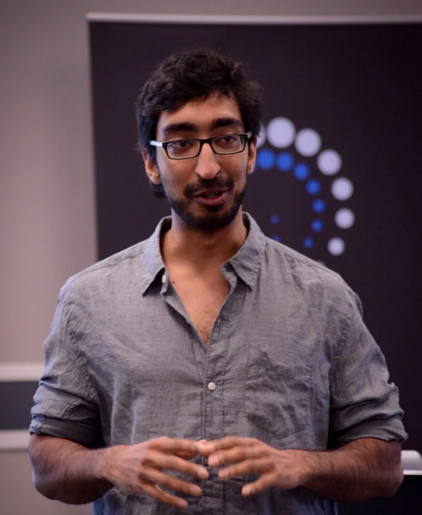When you think about starting a technology company the first thing that comes to mind might not be hip-hop. To some though, they are one in the same. Teja Yenamandra is the CEO Gun.io. They are a technology company that connects high quality freelance developers to well paying projects. He has used the hip-hip ethos to take his company from an idea to one that generates tens of millions of dollars in revenue each year. As a big fan of hip hop growing up he felt that starting his company seemed like starting out as a new artist in the hip-hop industry. In each step of the company he found parallels to the music industry, and used them to make decisions about how to run the company. I had a chance to sit down with him this past week to see how he has built his company up brick by brick using the mentality of a hip hop mogul.
According to Teja, starting a new company is the same as being a new artist because you're both building a business. In technology, your company is the business you're building, and in music you are the business yourself. You are using your Minimum Viable Product, either your technology or your music as the basis of your new company. On starting out his company he said,
"When my partners and I started the company, we knew that it was going to be hard. We were a company no one had heard of so it was going to be an uphill battle, but I always remembered the words of my favorite artists. These were people who came from nothing, and rose to heights of success many people can only dream of. When difficulties arose, I always remembered that challenges were speed bumps, not roadblocks.
Building up a company from the ground up is a difficult process. That applies whether you are an artist or starting a company. You are in a place where no one knows who you are, and your resources are lower than established brands. Also, finding ways to get creative press is a necessity, and that is just the beginning of it. Teja always analyzed the careers of different artists. He even said his best inspirations in work came from listening to hip hop music. Especially artists like Meek Mill, Rick Ross, and Jadakiss.
Technology companies these days are in a craze for raising money from venture capitalists. It seems like you always hear news about some new company that raised countless millions. It is always a group of twenty something's that a venture capitalist gave millions to for their fledgling idea. As Teja's company started to generate actual money, venture capitalists started to reach out. He took some of the meetings, but the team soon realized it was not what they wanted again drawing from his understanding of hip-hop.
The music industry has changed over the past decade. It used to be that to record music, you needed expensive studio equipment. There was also no way to distribute your music without signing to a major music label. This meant getting onto the radio was impossible as well. The Internet changed all that though. It ushered in an era of independent acts and labels that were successful without the old business model. Some examples include the label Funk Volume, Rostrum Records, and people like Macklemore. They have achieved heights of unimaginable success without the backing of any label. These people just found a way to add value to their listeners, connect with them, and built a business around that. Teja saw that was the way to go about his company as well.
When thinking about whether it was a good idea taking funds from venture capitalists, he gave a long hard look at the music industry. He realized getting funding in music and technology companies were similar. Major industry music labels and venture capitalists both provided the same thing. Some of those include access to a salary and other expenses to grow the company. There are also intangible resources like the connections to important people. He gave it a good deal of thought, and after discussing with his cofounders realized raising money was something he did not want to do. They realized not only was it unnecessary, it was detrimental to idea of independent success they desired. He wanted to stay independent like so many in the music industry are doing now.
Teja wanted to bootstrap his company. In other words, find a way to create a self-sustaining business that did not need outside funds. That is exactly what Gun.io has been able to achieve. Starting in 2012 with nothing but an idea, they found a way to add value to their users, and monetize successfully on it. The Internet has ushered in an era that has completely changed how jobs work. No longer is it necessary to go into the same office everyday with a 9-to-5 job. People can run businesses or work from the comfort of their own home, make good money, and maintain the freedom that many can not. That is what Gun.io allows for their users. They even created a term they are popularizing as their company continues to ascent, "digital nomad". It means being someone who roams city-to-city claiming his or her bounty using only your computer.
Hip-hop started as a small idea in the Bronx in the late 1970's. The influence it has had is more far reaching than anyone could have ever imagined. It was an outlet of creative expression for kids in parks. Now the ethos it created is building multimillion-dollar companies out of thin air. And it is doing it in industries that have no connection to music itself. Gun.io and Teja are powerful examples of what positive things hip-hop can bring about, and it is for sure that we will hear about examples like this in the future.

